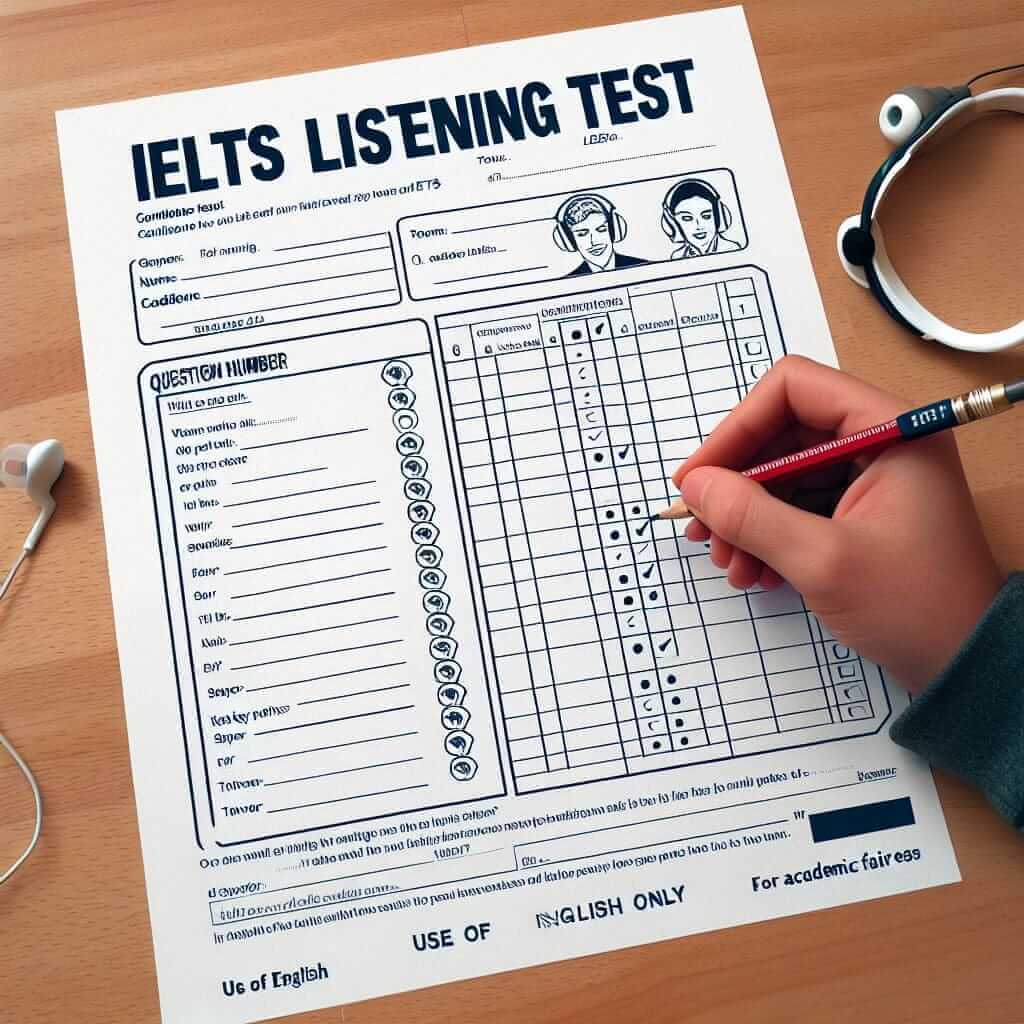The IELTS Listening test can seem daunting, but with the right approach and preparation, you can achieve your desired score. As an IELTS instructor with over 20 years of experience, I’m here to share proven strategies to help you excel in this section.
Understanding the IELTS Listening Test Format
Familiarity with the test format is crucial. The IELTS Listening test is 30 minutes long and comprises four sections, each with 10 questions. You’ll encounter a variety of accents and question types, including:
- Multiple Choice
- Sentence Completion
- Matching
- Diagram/Map/Plan Labeling
- Short-Answer Questions
Effective Strategies for IELTS Listening Success
1. Active Listening and Note-Taking
- Focus: Pay undivided attention to the audio. Avoid distractions and concentrate on understanding the main ideas, details, and speaker’s tone.
- Keywords: Identify and jot down keywords related to the questions. This helps you stay on track and locate answers quickly.
- Abbreviations: Develop a system of abbreviations to save time while taking notes. For instance, “approx.” for “approximately” or “gov.” for “government.”
2. Predicting and Anticipating
- Preview Questions: Before each section begins, use the provided time to read the questions carefully. This allows you to anticipate the content and focus your listening.
- Identifying Clues: Pay attention to question cues such as question words (who, what, where, when, why, how), verbs, and keywords. These provide valuable hints about the information you need to listen for.
3. Vocabulary Enhancement
- Expand Your Lexicon: A strong vocabulary is essential for understanding a range of accents and topics. Regularly learn and review new words, especially those related to common IELTS themes.
- Contextual Clues: Even if you encounter unfamiliar words, try to infer their meanings from the context of the audio.
4. Practice Tests and Mock Exams
- Regular Practice: Consistent practice is key to improving your listening skills. Utilize official IELTS practice materials and online resources to simulate test conditions.
- Analyzing Mistakes: After each practice test, thoroughly analyze your errors. Identify patterns in your mistakes to understand your weaknesses and focus your improvement efforts.

Example from a Real IELTS Listening Test
You will hear a conversation between a student and a librarian.
Questions 1-3
- Complete the table below.
- Write NO MORE THAN TWO WORDS AND/OR A NUMBER for each answer.
| Book Title | Author | Due Date |
|---|---|---|
| The History of Modern Art | (1)___ | (2)___ |
| (3)___ | Jane Austen | 15th March |
Audio Script:
Librarian: Can I help you find something?
Student: Yes, I’m looking for “The History of Modern Art.” I think it’s by David Smith.
Librarian: Let me check. Ah, yes. It’s due back on the 10th of March.
(Later in the conversation)
Student: And I also need “Pride and Prejudice” by Jane Austen.
Librarian: That one’s available, and you can borrow it until the 15th of March.
Answers:
- David Smith
- 10th March
- Pride and Prejudice
Top Tips for Test Day
- Stay Calm: Manage test-day anxiety by taking deep breaths and focusing on your preparation.
- Follow Instructions: Listen carefully to all instructions given by the examiner.
- Time Management: Use any remaining time after each section to preview the questions for the next section.
- Transfer Answers Carefully: Double-check that you have transferred your answers accurately to the answer sheet.
Conclusion
Passing the IELTS Listening test requires a multifaceted approach that includes focused practice, strategic listening techniques, and vocabulary development. By consistently implementing the strategies outlined above and learning from your mistakes, you’ll be well-equipped to succeed on test day. Good luck!